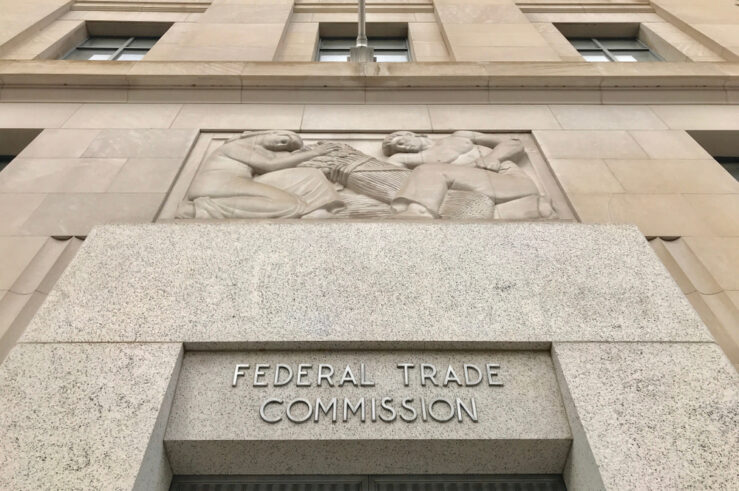Showing archive for: “Efficiencies”
No More Kings? Due Process and Regulation Without Representation Under the UK Competition Bill
What should a competition law for 21st century look like? This point is debated across many jurisdictions. The Digital Markets, Competition, and Consumers Bill (DMCC) would change UK competition law’s approach to large platforms. The bill’s core point is to place the UK Competition and Markets Authority’s (CMA) Digital Markets Unit (DMU) on a statutory footing with ... No More Kings? Due Process and Regulation Without Representation Under the UK Competition Bill
Antitrust at the Agencies Roundup: The Orphan’s Hypothetical Competitor Edition
Some may refer to this as the Roundup Formerly Known as the FTC Roundup. If you recorded yourself while reading out loud, and your name is Dove, that is what it sounds like when doves sigh. Maybe He Never Said ‘Never’ The U.S. Justice Department’s (DOJ) Antitrust Division recently agreed to settle its challenge of Swedish conglomerate ... Antitrust at the Agencies Roundup: The Orphan’s Hypothetical Competitor Edition
UK Blocking of Microsoft-Activision Merger Is Anticompetitive and Anti-Innovation
The United Kingdom’s Competition and Markets Authority (CMA) late last month moved to block Microsoft’s proposed vertical acquisition of Activision Blizzard, a video-game developer that creates and publishes games such as Call of Duty, World of Warcraft, Diablo, and Overwatch. Microsoft summarized this transaction’s substantial benefits to video game players in its January 2022 press release announcing the proposed merger. The ... UK Blocking of Microsoft-Activision Merger Is Anticompetitive and Anti-Innovation
Four Horsemen of the Bureaucratic Apocalypse Come for AI
Four prominent horsemen of the Biden administration’s bureaucratic apocalypse—the Federal Trade Commission (FTC), U.S. Justice Department (DOJ) Civil Rights Division (DOJ), Consumer Financial Protection Bureau (CFPB), and the U.S. Equal Employment Opportunity Commission (EEOC)—came together April 25 to issue a joint statement pledging vigorous enforcement against illegal activity perpetrated through the use of artificial intelligence ... Four Horsemen of the Bureaucratic Apocalypse Come for AI
European Commission’s Leaked SEP Regulation Would Increase Costs for Innovators, Hurt EU Competitiveness, and Fail to Reduce Litigation
The European Commission is working on a legislative proposal that would regulate the licensing framework for standard-essential patents (SEPs). A regulatory proposal leaked to the press has already been the subject of extensive commentary (see here, here, and here). The proposed regulation apparently will include a complete overhaul of the current SEP-licensing system and will ... European Commission’s Leaked SEP Regulation Would Increase Costs for Innovators, Hurt EU Competitiveness, and Fail to Reduce Litigation
Biweekly FTC Roundup: Antitrust Woodstock Edition
Last week’s roundup was postponed because I was kibbitzing at the spring meeting of the American Bar Association (ABA) Antitrust Section. For those outside the antitrust world, the spring meeting is the annual antitrust version of Woodstock. For those inside the antitrust world: Antitrust Woodstock is not really a thing. At the planetary-orbit level, the ... Biweekly FTC Roundup: Antitrust Woodstock Edition
What the European Commission’s More Interventionist Approach to Exclusionary Abuses Could Mean for EU Courts and for U.S. States
The European Commission on March 27 showered the public with a series of documents heralding a new, more interventionist approach to enforce Article 102 of the Treaty on the Functioning of the European Union (TFEU), which prohibits “abuses of dominance.” This new approach threatens more aggressive, less economically sound enforcement of single-firm conduct in Europe. ... What the European Commission’s More Interventionist Approach to Exclusionary Abuses Could Mean for EU Courts and for U.S. States
Is the FTC Threatening Efficient Franchise Relationships?
Franchising plays a key role in promoting American job creation and economic growth. As explained in Forbes (hyperlinks omitted): Franchising as a business institution is oriented toward reducing economic inefficiencies in commercial relationships. Specifically, economic analysis reveals that it is a potential means for dealing with opportunism and cabining transaction costs in vertical-distribution contracts. In ... Is the FTC Threatening Efficient Franchise Relationships?
No, Mergers Are Not Like ‘The Ultimate Cartel’
There is a line of thinking according to which, without merger-control rules, antitrust law is “incomplete.”[1] Without such a regime, the argument goes, whenever a group of companies faces with the risk of being penalized for cartelizing, they could instead merge and thus “raise prices without any legal consequences.”[2] A few months ago, at a ... No, Mergers Are Not Like ‘The Ultimate Cartel’
Killer Acquisition or Leveling Up: The Use of Mergers to Enter Adjacent Markets
In the world of video games, the process by which players train themselves or their characters in order to overcome a difficult “boss battle” is called “leveling up.” I find that the phrase also serves as a useful metaphor in the context of corporate mergers. Here, “leveling up” can be thought of as acquiring another ... Killer Acquisition or Leveling Up: The Use of Mergers to Enter Adjacent Markets
7 Top Takeaways from the 2nd Annual Mercatus Antitrust Forum
At the Jan. 26 Policy in Transition forum—the Mercatus Center at George Mason University’s second annual antitrust forum—various former and current antitrust practitioners, scholars, judges, and agency officials held forth on the near-term prospects for the neo-Brandeisian experiment undertaken in recent years by both the Federal Trade Commission (FTC) and the U.S. Justice Department (DOJ). ... 7 Top Takeaways from the 2nd Annual Mercatus Antitrust Forum
The FTC’s NPRM on Noncompete Clauses: Flirting with Institutional Crisis
The Federal Trade Commission’s (FTC) Jan. 5 “Notice of Proposed Rulemaking on Non-Compete Clauses” (NPRMNCC) is the first substantive FTC Act Section 6(g) “unfair methods of competition” rulemaking initiative following the release of the FTC’s November 2022 Section 5 Unfair Methods of Competition Policy Statement. Any final rule based on the NPRMNCC stands virtually no ... The FTC’s NPRM on Noncompete Clauses: Flirting with Institutional Crisis













